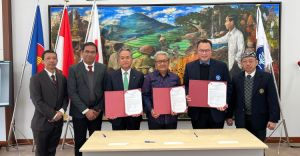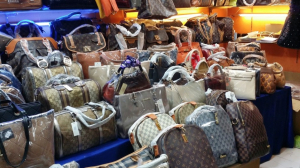Halal product industry in Indonesia: A brief background and its challenges
As 86.7% of the country's population is registered Muslim, the halal market trends in Indonesia tends to increase significantly, especially these past 10 years. The country is now known as the world's largest domestic halal economy market. The most potential halal products are food, beverages, Muslim clothing, cosmetics, and halal tourism, according to a professor at the Bogor Agricultural University (IPB)'s School of Argoindustrial Technology Khaswar Syamsu.
The halal industry has been able to record positive performance despite the pressure on economies around the world owing to the COVID-19 pandemic. Prior to the pandemic, in 2019, the industry had recorded a growth of 3.2% — higher than global economic growth of 2.3%, Antara reported in April 2021.
Indonesia has the opportunity to add US$ 5.1 billion or IDR 72.9 trillion to gross domestic product (GDP) from the halal industry. Based on the Indonesia Halal Market Report 2021/2022 - which was launched by the Dinar Standard - this amount came from increasing exports, import substitution and foreign investment (PMA).
Challenges in industry
However, with all of these opportunities, Indonesia is also facing some challenges in halal product industry, such are:
- In global proposition
- Trade barrier hinder export (special safeguard & tariff discrimination);
- There are others existing halal economy leaders;
- Variety of special qualities and safety standards in some countries.
- In domestic proposition
- Need for “Made in Indonesia” proposition as a tool to promote domestically produced goods domestically and internationally;
- Higher food prices threaten import-dependent products;
- Foreign investors are concerned that Indonesia cannot be integrated into its supply chains without efficient logistics;
- Limited Special Economic Zones (SEZ) to attract foreign investments.
- In government commitment
- The policies of the government and regional administrations are still not aligned to meet halal industry-related regulations;
- Lack of cooperation between key stakeholders (halal certification institutions, producers, scholars, researchers, and the government), limited global recognition for halal products from Indonesia;
- Technical regulatory problems with the certification process hinder global reach.
- In production capabilities
- Lack of R&D and testing facilities for ingredients for halal products – food, pharmaceuticals and cosmetics;
- Lack of skilled workers and technology in producing raw materials, leading to inefficiencies in production;
- Lack of value-added commodities and competitiveness in meeting export markets and import substitution;
- Limited integration of upstream and downstream industries in the fashion sector like standardization in the quality and quantity of key materials and supporting materials;
- There are other leading halal economy producers such as Australia, Malaysia, and Thailand;
- There are competitive pricing of halal products by non-OIC exporters.
Already have an account? Sign In
-
Start reading
Freemium
-
Monthly Subscription
30% OFF$26.03
$37.19/MonthCancel anytime
This offer is open to all new subscribers!
Subscribe now -
Yearly Subscription
33% OFF$228.13
$340.5/YearCancel anytime
This offer is open to all new subscribers!
Subscribe now






